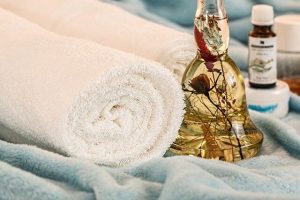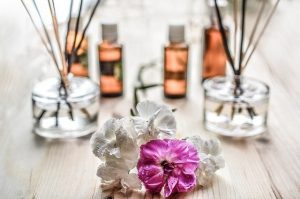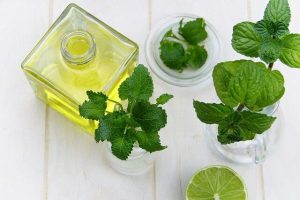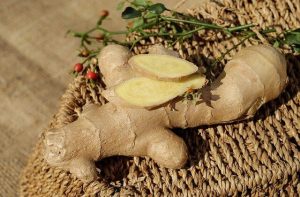Aromatherapy: 3 main uses and guide
Aromatherapy is a holistic healing method that promotes health and well-being using natural plant extracts. Essential oil therapy is another name for it. Aromatherapy is a type of medicine that uses scented essential oils to improve physical, mental and spiritual well-being. It improves physical and mental well-being.
Aromatherapy is not new but has been around for thousands of years. Ancient civilizations in China, India, Egypt and other countries incorporated various parts of aromatic plants into the manufacture of certain medicines and oils. These traditional materials were used for a variety of purposes. As we all know, it is good for the body and mind.
The distillation of essential oils is attributed to the Persians in the 10th century, but it is likely that aromatherapy appeared much earlier.
Aromatherapy has many benefits:

As its name suggests, aromatherapy has many benefits as it is a type of treatment, which means that it provides us with several benefits, summarized as follows:
- Improve the quality of sleep by managing discomfort
- Reduce agitation, anxiety and stress
- Relieve painful joints
- Treating headaches
- Relieve the effects of chemotherapy
- Improve the immune system
Aromatherapy uses the extract of natural products to act on the sense of smell and skin absorption such as:
1 / Food supplements:
Dietary supplements are concentrated sources of nutrients, such as vitamins and minerals, as well as compounds for nutritional or physiological use and herbs intended to make up for deficiencies in a person’s usual diet.
Supplements are available in a variety of formats, including capsules, lozenges, tablets, pills, powder packets, liquid ampoules, dropper bottles and solutions.
While a well-balanced diet is essential for optimal health, our current lifestyles frequently upset this balance. In this case, taking dietary supplements to make up for any nutritional deficiencies can be a good idea.
Example of aromatic food supplement:
- Organic Artichoke
- Athomik Slimming
- Organic Borage
- Organic Cranberry
- Organic Shark Cartilage
- Organic Charcoal
- Milk Thistle Organic
- Organic Chlorella
- Desmodium Bio
- Fenugreek Organic
- Organic Fucus
- Organic Garcinia
- Organic Royal Jelly
- Organic Konjac
- Organic Marine Magnesium
- Horse chestnut
- Propolis
- Black radish
2 / Essential Oils:

The compounds derived from plants are called essential oils. Oils capture the aroma and flavor of the plant, or its essence. Each essential oil has its own distinct aroma due to its unique aromatic components. Distillation (steam and / or water) or mechanical processes, such as cold pressing, are used to produce essential oils. Once the aromatic compounds are extracted, they are blended with a carrier oil to make a finished product.
Each essential oil has its own set of medicinal powers, applications and consequences. The benefits of combining essential oils to form a synergistic blend are multiplied.
In fact, essential oils can be used in a variety of ways. By adding them to body lotions or carrier oils, for example, and then applying them topically. Use essential oils to enhance a toner, shampoo or facial conditioner. Alternatively, you can add them to liquid soap, toothpaste or mouthwash. Oils can also be diffused or sprayed on a room, or poured into a bath.
Example of Essential Oils:
- Bergamot
- Apricot
- Rosewood
- Thyme to Thymol
- Verbena
- Vetiver
- Yarrow
- White Mugwort
- Basil
- Basil, large green
- Bergamot
- Cajeput
- Blue Chamomile
- Chamomile, Roman
- Camphor
- Cinnamon
- Cinnamon of Ceylon
- Carrot
- Carrot-Daucus
- Cedar of the Atlas
- Cistus
- Cistus-Cistus
- Lemon, yellow
- Lime – Citrus limonum
- Lemon – Citrus limonum
- Lemon grass
- Citronella of Java
- Cypress
- Cypress evergreen
- Olibanum Incense
- Black spruce
- Eucalyptus Citriodora
- Eucalyptus Globulus
- Eucalyptus Radiata
- Fennel
- Wintergreen
- Juniper
- Geranium
- Clove
- Helichrysum
- Noble Laurel
- Lavender aspic
- Fine Lavender
- True Lavender
- Lavandin abrial
- Lemon grass
- Pistachio mastic
- Lemon lite
- Red mandarin
- Marjoram of the Spanish gardens
- Peppermint
- Poultry Mint
- Red myrtle
- Neroli
- Niaouli
- Sweet Orange
- Orange bitter
- Oregano
- Compact Oregano
- Palmarosa
- Grapefruit
- Patchouli
- Small grain
- Scots Pine
- Black pepper
- Ravintsara
- Rosemary
- Rosemary viburnum
- Rosemary rosmarinus
- Siberian fir
- Perennial Savory
- Sage officinale
- Tea tree
- Borneol thyme
- Thyme linalool
- Ylang ylang
3 / Aromatic herbs

Aromatic herbs are an excellent addition to rich flavors. They also contribute to the satisfaction of many of our dietary needs.
They are delicious and give a wonderful touch of color to our food, but they are also rich in fiber, minerals, vitamins and antioxidants and many other elements.
Some virtues of herbs:
Aromatic herbs are low in calories, with only 15 to 30 calories per 100g, which implies that they do not contribute anything to the energy balance and rarely use more than 20g, or a small bunch. They also help to keep the amount of added salt to a minimum.
Herbs are rich in chlorophyll, an antioxidant that helps fight the harmful effects of free radicals, which cause heart disease, cancer and other illnesses.
Vitamin K is found in aromatic plants and is necessary for blood clotting. It also facilitates the binding of calcium to the bones.
Examples of aromatic herbs:
- Laurel leaves
- Provincial herbs
- Lavender
- Oregano
- Rosemary
- Thyme
Other products of aromatherapy:

There are several other products used in aromatherapy based on organic material and for daily use , such as:
- Cocoa butter
- Ginger Powder
- Orange blossom water
- Chamomile CO2 extract
- Botanical gel with fresh juice of Aloe Vera and Vetiver
- Rosemary Hydrolate
- Turmeric Powder
- Anti Mosquito Fragrance
The last thing to note is that it is essential to consult your doctor before starting aromatherapy so that you can enjoy its full benefits with the least risk.
If you have chosen aromatherapy to take care of yourself, your body as well as your mind, then we invite you to share with us the aromatherapy product you like the most and how it has helped you feel better and enjoy your life.
